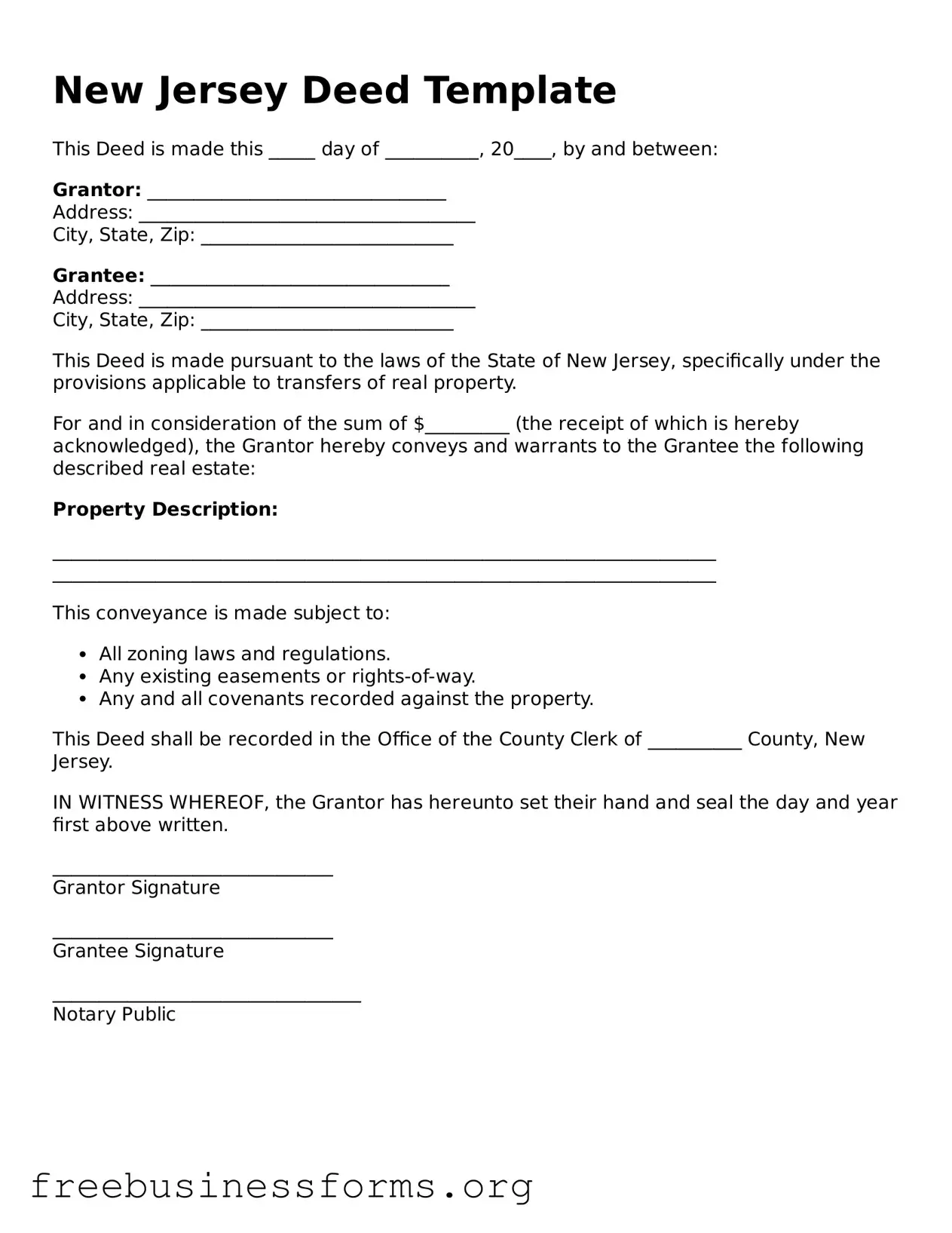Blank Deed Template for New Jersey
A New Jersey Deed form is a legal document used to transfer ownership of real estate from one party to another. This form outlines the details of the property and the parties involved in the transaction. Understanding how to properly fill out and file this document is crucial for ensuring a smooth transfer of property rights.
Open Form Here

Blank Deed Template for New Jersey
Open Form Here

Open Form Here
or
↓ PDF File
Quickly complete this form online
Complete your Deed online quickly — edit, save, download.